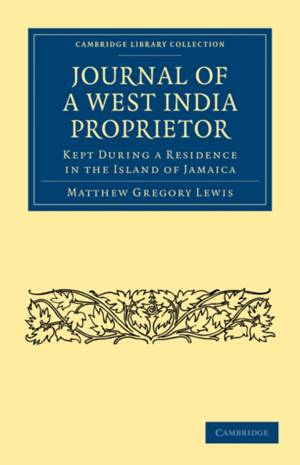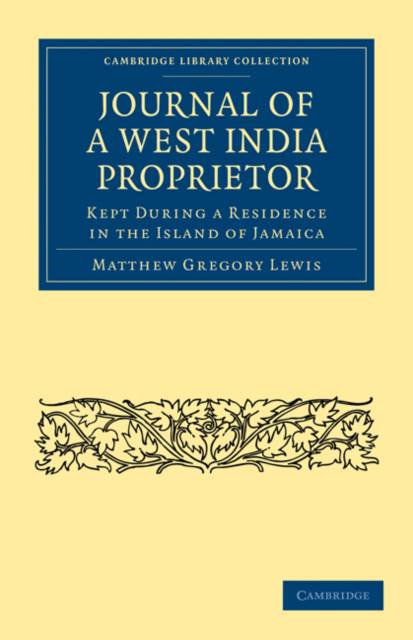
Je cadeautjes zeker op tijd in huis hebben voor de feestdagen? Kom langs in onze winkels en vind het perfecte geschenk!
- Afhalen na 1 uur in een winkel met voorraad
- Gratis thuislevering in België vanaf € 30
- Ruim aanbod met 7 miljoen producten
Je cadeautjes zeker op tijd in huis hebben voor de feestdagen? Kom langs in onze winkels en vind het perfecte geschenk!
- Afhalen na 1 uur in een winkel met voorraad
- Gratis thuislevering in België vanaf € 30
- Ruim aanbod met 7 miljoen producten
Zoeken
Journal of a West India Proprietor
Kept During a Residence in the Island of Jamaica
Matthew Gregory Lewis
€ 78,95
+ 157 punten
Uitvoering
Omschrijving
Matthew 'Monk' Lewis (1775-1818) is best known as a writer of plays and 'Gothic' novels such as The Monk (from which he acquired his nickname). On the death of his father in 1812, he inherited a large fortune, including estates in Jamaica. He spent four months there in 1815, during which time much of this Journal of a West India Proprietor was written. He became interested in the condition of the slaves on his estates, and on returning to England made contact with William Wilberforce and other abolitionists. The improvements he made on his own estates were unpopular with other landholders, but foreshadowed the reforms of the 1830s, when the Journal was published. He revisited the island in 1817, but died of yellow fever on the way home. S. T. Coleridge regarded the Journal as Lewis' best work, and the one most likely to be of lasting value.
Specificaties
Betrokkenen
- Auteur(s):
- Uitgeverij:
Inhoud
- Aantal bladzijden:
- 418
- Taal:
- Engels
- Reeks:
Eigenschappen
- Productcode (EAN):
- 9781108024853
- Verschijningsdatum:
- 9/12/2010
- Uitvoering:
- Paperback
- Formaat:
- Trade paperback (VS)
- Afmetingen:
- 140 mm x 216 mm
- Gewicht:
- 526 g

Alleen bij Standaard Boekhandel
+ 157 punten op je klantenkaart van Standaard Boekhandel
Beoordelingen
We publiceren alleen reviews die voldoen aan de voorwaarden voor reviews. Bekijk onze voorwaarden voor reviews.









